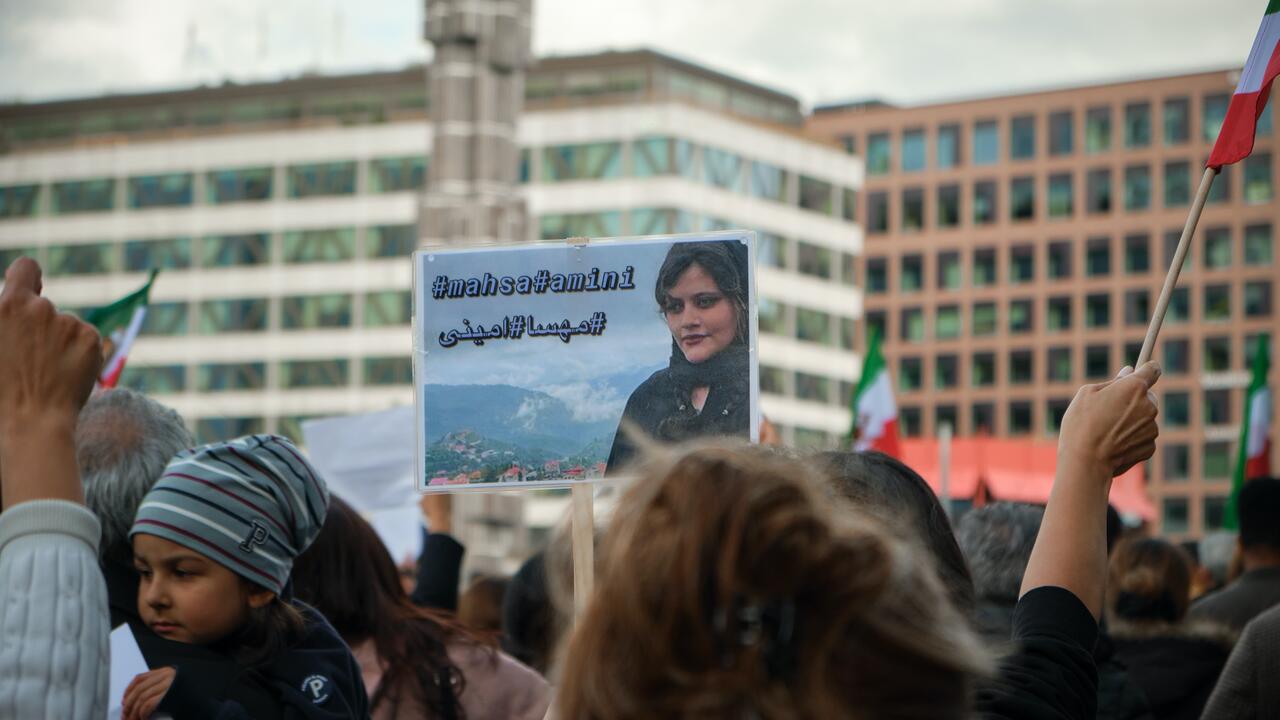
From fear to heroism
Iranian students reflect on the revolution and the courage of their people

Iranian students reflect on the revolution and the courage of their people
By Darren McAlmont University RelationsWARNING: The following story contains discussion of the violent treatment experienced by women in Iran. Reader caution is advised.
On September 16, 2022, news broke that Jina Mahsa Amini — a 22-year-old Kurdish woman — died while in custody of Iranian “morality police” after she was arrested for "improperly" wearing her hijab, a violation of the country’s strict dress code for women. While in custody, it is reported that she was beaten into a coma and succumbed to the blows to her head.
The brutal acts against Amini by Iran’s morality police have ignited what many Iranians are calling "the revolution."
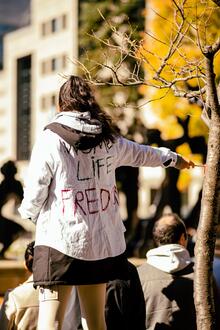 Over the past year, women have defiantly ripped the hijabs off their heads and have cut their hair in protest to the totalitarian regime. But Iranian women have not been alone in this fight — the Iranian men, queer and trans folks have also been on the front line of the revolution, standing in solidarity with the country’s women who have been conditioned to live in fear and subjugation of the government and their male counterparts. This solidarity, and fear, extends to many students and employees of the University of Waterloo.
Over the past year, women have defiantly ripped the hijabs off their heads and have cut their hair in protest to the totalitarian regime. But Iranian women have not been alone in this fight — the Iranian men, queer and trans folks have also been on the front line of the revolution, standing in solidarity with the country’s women who have been conditioned to live in fear and subjugation of the government and their male counterparts. This solidarity, and fear, extends to many students and employees of the University of Waterloo.
A PhD candidate in systems design engineering at Waterloo, whom we shall refer to as Helen, describes the revolution as "the most beautiful thing I’ve ever experienced." Helen’s legal name is being withheld due to well-grounded fears of retaliation against her family still in Iran.
"For me, Woman. Life. Freedom was a profound experience of collective effervescence, self-transcendence and moral beauty. Never in my life have I witnessed such raw bravery from ordinary everyday people — like running straight at armed guards, knowing full well the deadly risk. This level of heroism is only possible when someone decides, 'this is for everyone else,' and you know they mean every word!"
The demonstrators have been keen to send one message: Iranians are fed up with the totalitarian regime and will fight for their freedom. Though no laws have been changed, the revolution has undoubtedly created a cultural shift in the country. Iranian women now showcase and celebrate a kind of self-confidence that’s not been seen in more than four decades.
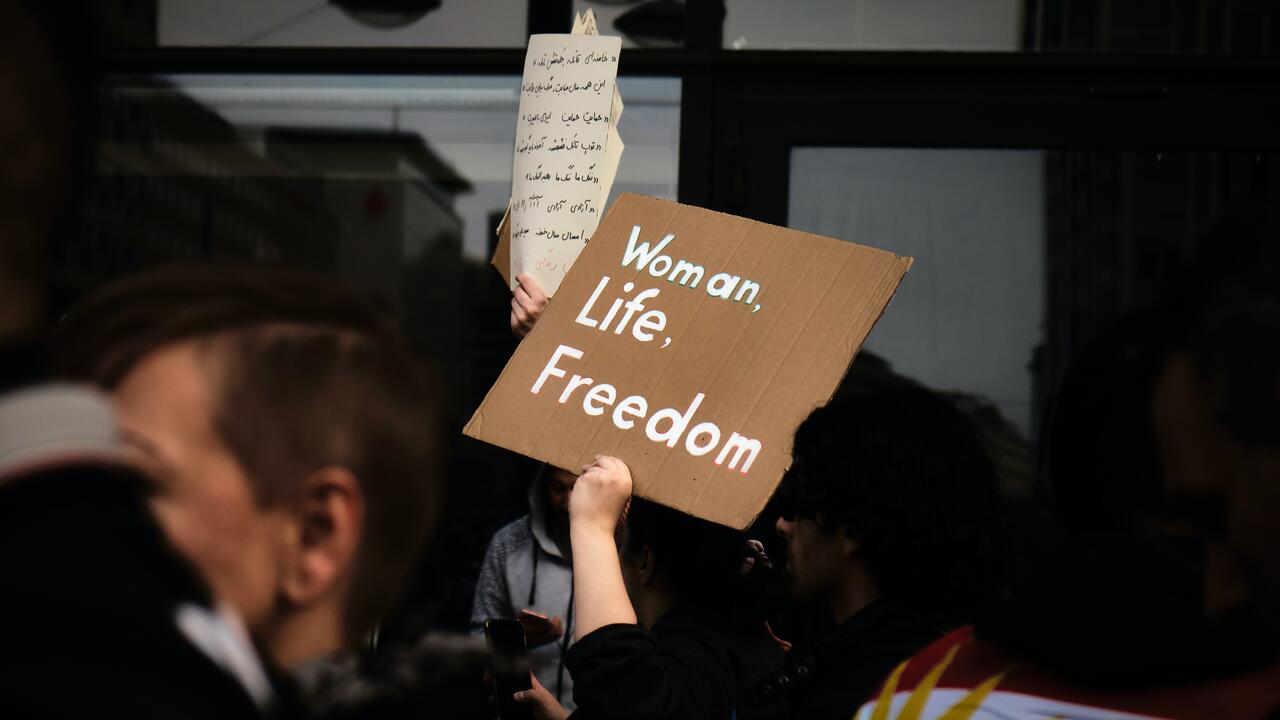
Having lived in fear for over two decades of her life in Iran, Helen wanted a reprieve from it. Reprieve from the fear of possibly being imprisoned, beaten or killed by her country’s morality police for simply holding her partner’s hand in public. "I wanted to flee. I sort of left everyone that I had known and loved until then behind," Helen recounts of her decision to move to Canada in 2017.
Midas, another student at Waterloo, pursuing an undergraduate degree in mathematical physics, has been unashamedly vocal in their advocacy and critique of the ruling party in their country. They now live with the fear of never being able to go home again. As a queer person, Midas’ courage for speaking up is fueled by seeing the presence of other queer and trans people on the front line of the revolution. Before leaving Iran, they never imagined a time would come when 2SLGBTQIA+ people would have been so visible, as this group has historically faced the most extreme punishment in their country.
"There are many people like me … We had to leave the country because that was the only way to survive. We are the lucky ones. We are the privileged ones who made it here," Midas states.
Both Helen and Midas describe feeling like asylum seekers in Canada though they never filed a refugee petition. They further explain that moving to Canada didn’t immediately make them feel safe. They avoided other Iranians and hid any sign of their heritage for fear of meeting the wrong Iranian who might have connections to the government, which would put their family in harm’s way.
"It's the insidious monarchy of fear, where you become your own warden, policing yourself even in the absence of tangible threats," says Helen.
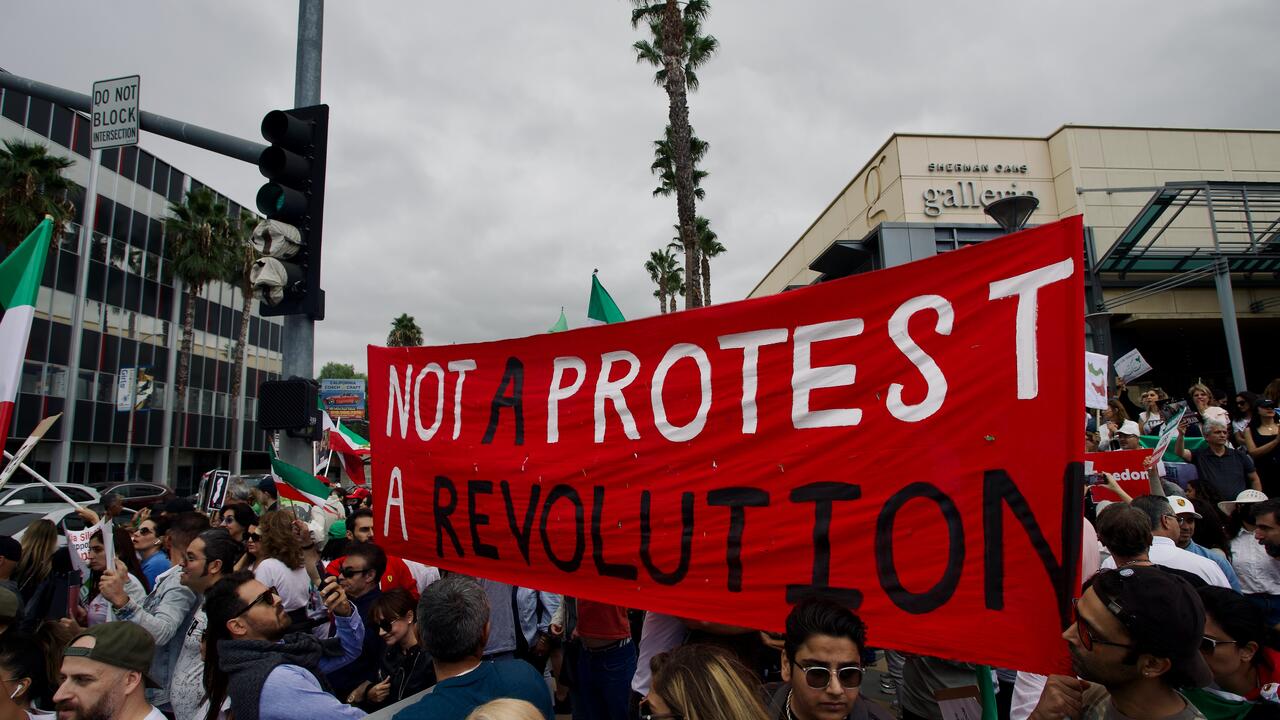
Describing the revolution as a "thing of beauty," Midas also draws some parallels with the war in Ukraine. They contend that while many countries are shocked by the reality that one country’s leader can be so brazen to attempt to steal the sovereignty of another by force and intimidation, Iranians have known for the past 40 or 50 years that this is not unimaginable.
"We know that they can kill people in the streets with no consequences. We know that they can put people in prison with no consequences. We know that the whole justice system is based on this one person — the country's leader and whatever he says is correct," Midas emphasizes.
After a full year of revolt, Iranians, especially women, are still fighting for many of the freedoms enjoyed by Canadians and those settling in Canada. But we must recognize how far they’ve come. For more than four decades, Iranian women were not granted motorcycle licenses, let into stadiums, or allowed to experience the sensation of wind in their hair and sun on limbs. They also grappled with legal inequalities, restrictions in public life, limited political representation, and discrimination in education, employment and marriage laws.
"This treatment has a name: gender apartheid," Helen states. But now, more and more women are bravely challenging these discriminatory norms. As change beckons on the horizon, they're asserting their rights, removing one mandatory headscarf at a time, despite the profound risks associated with such acts of defiance.
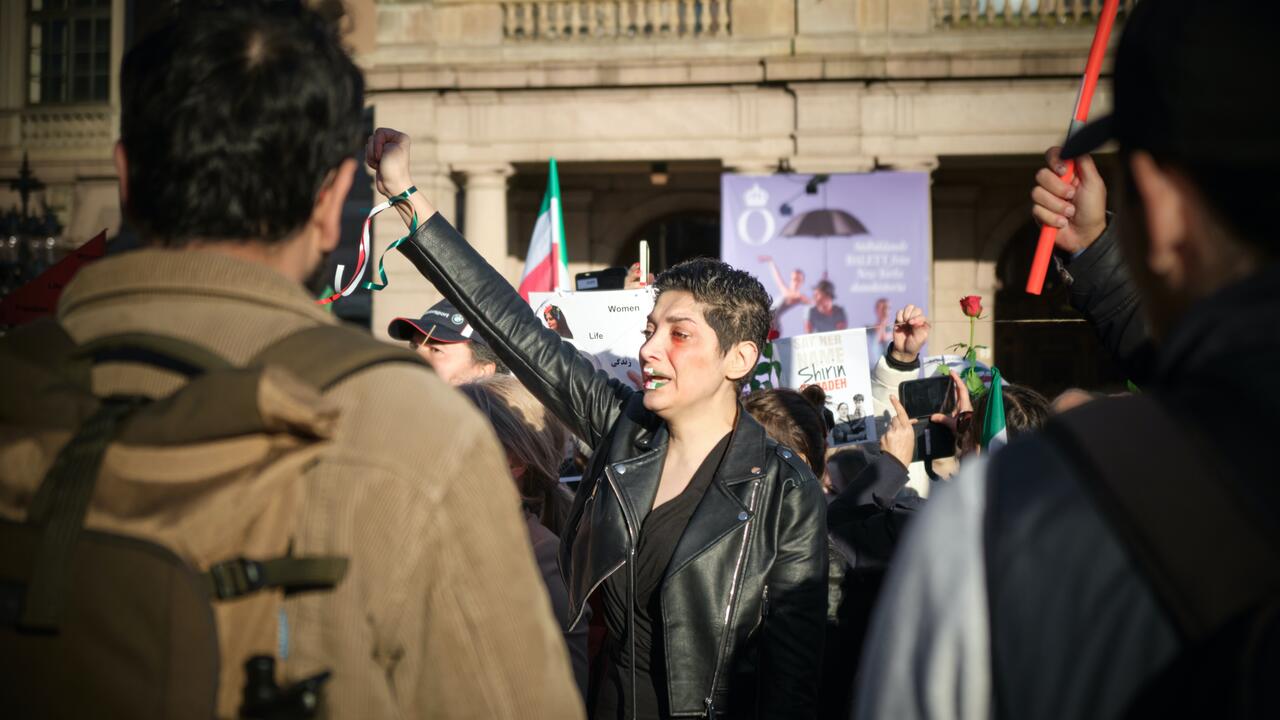
The privilege of living in a democratic society is why Helen and Midas both use the same word to describe the emotions they feel when they see the images of the women in their country today, protesting for the freedom of their lives. It is "hope."
Holding back tears, Midas laments: "There's a hope of a lot of things. It's hope of seeing my people being happy. Hope of seeing my people living comfortable lives. Hope for justice. Hope for the fact that one day I might be able to walk back in the street that I grew up on. Hope that I might be able to hug my loved ones and those family members that I thought I will never see ever again."
The University of Waterloo is also hopeful for brighter days in Iran and wishes to reaffirm its unequivocal support to the Iranian community on campus.
As a reminder, if you need support, please reach out. For counseling appointments, you can call Campus Wellness between 8:30 a.m. and 4:30 p.m. at 519-888-4096.
Mental health crisis support is also available 24/7: 1-844-437-3247 and counselling support is provided 24 hours a day through Empower Me: 1-833-628-5589. For more information about Empower Me, students are encouraged to check out the Empower Me WUSA website.

Read more
Here are the people and events behind some of this year’s most compelling Waterloo stories

Read more
A closer look at the University of Waterloo’s beloved network of pedestrian tunnels and bridges

Read more
A winter holiday message from President Vivek Goel
The University of Waterloo acknowledges that much of our work takes place on the traditional territory of the Neutral, Anishinaabeg, and Haudenosaunee peoples. Our main campus is situated on the Haldimand Tract, the land granted to the Six Nations that includes six miles on each side of the Grand River. Our active work toward reconciliation takes place across our campuses through research, learning, teaching, and community building, and is co-ordinated within the Office of Indigenous Relations.